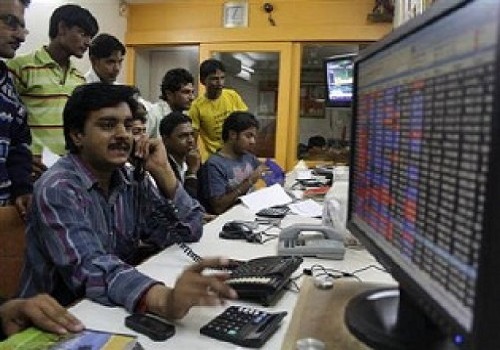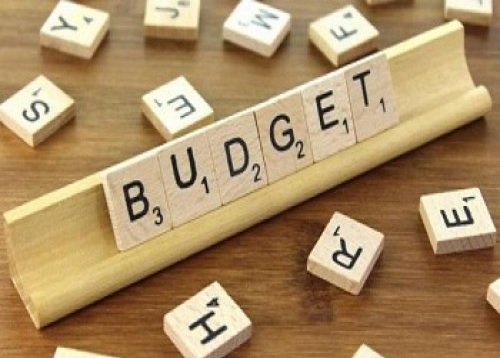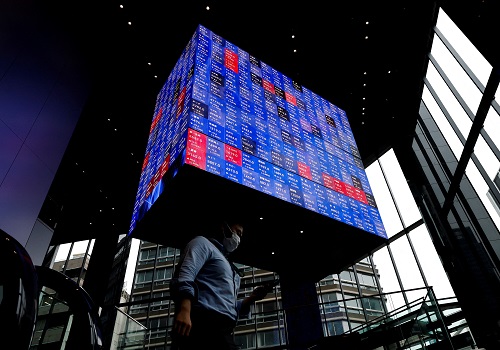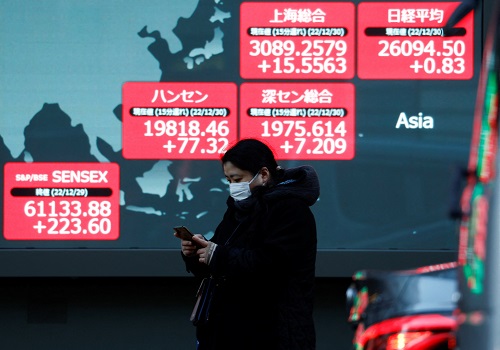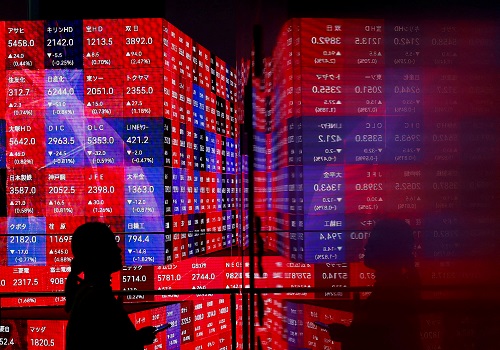Asian shares subdued on rate-hike jitters, yen at 32-year lows
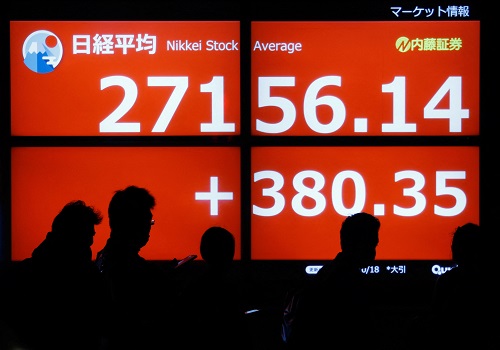
Follow us Now on Telegram ! Get daily 10 - 12 important updates on Business, Finance and Investment. Join our Telegram Channel
Asian shares slipped on Friday as the prospect of aggressive interest rate hikes from the Federal Reserve soured investor sentiment, while yen wilted to fresh 32-year lows, with markets on high alert for any sign of intervention.
U.S. benchmark 10-year Treasury yields scaled fresh 14-year peaks, weighing on the equities market and pinning down gold prices.
Sterling edged lower after a short-lived rally following the resignation of Britain's Prime Minister Liz Truss.
European stock futures indicated stocks were set to decline, with Eurostoxx 50 futures down 0.92%, German DAX futures down 1.04% and FTSE futures down 0.47%.
MSCI's broadest index of Asia-Pacific shares outside Japan was 0.64% lower but above the two-and-a-half year low it touched on Thursday. The index was set for second straight week of losses.
"It's all so tenuous... the problem is the macro environment still remains difficult," said Shane Oliver, chief economist at AMP Capital, adding that the market is in a tug of war between investors who see opportunities and those who are focused on the difficult environment.
Global markets have been extremely volatile as investors have worried that hefty rate hikes will push major economies into recessions before inflation is tamed, while an even stronger dollar as the Fed tightens could wreak havoc in emerging markets.
Philadelphia Federal Reserve President Patrick Harker on Thursday suggested the central bank will "keep raising rates for a while," while U.S. economic data showed persistent labour market tightness.
As a result, 10-year Treasury yields continued its ascent and rose to as much as 4.2663%, its highest level since June 2008.
"It really is the U.S. bond show that drives broad markets and while liquidity is an issue, the talk is there are just no buyers," said Chris Weston, head of research at Pepperstone.
In Asia, Australia's resources-heavy share index lost 0.73%, while Japan's Nikkei slid below the key 27,000 mark on Friday.
China shares nudged higher as investors cautiously awaited policy signals from the ongoing Communist Party Congress, with the blue-chip CSI 300 Index up 0.2% and the Shanghai Composite Index gained 0.5%.
Xi Jinping, set to clinch a third five-year term as China's leader, will reveal the members of its elite Politburo Standing Committee at the conclusion of the twice-a-decade congress on Sunday.
In the currency market, the Japanese yen breached a fresh 32-year low, and last traded at 150.39 per dollar. The currency weakened past the symbolic 150 level late on Thursday afternoon in Tokyo after being perilously close to the mark through the week.
It took a while, but yen is now above 150, ING economists said, adding that the fact that the yen crept across the line was enough to curb any reaction. "If so, onwards and upwards still seems the most likely path for the JPY to follow."
Fresh threats of intervention made by Japanese policymakers have kept investors on alert, although there has been no news of further action since the Ministry of Finance's dollar-selling, yen-buying intervention last month.
With Japan's core consumer inflation rate accelerating to a fresh eight-year high of 3.0% in September, underscoring the dilemma the Bank of Japan faces as it tries to underpin a weak economy by maintaining ultra-low interest rates, which in turn are fuelling an unwelcome slide in the yen.
"The only way intervention works is if it is backed up by change in monetary policy, AMP Capital's Oliver said. "Unless you get BOJ onside to tighten monetary policy at the same time as the intervention it's not going to make much of a difference."
Elsewhere, the pound was trading at $1.1192, down 0.36% on the day following Truss' resignation late on Thursday. [/FRX]
The dollar index rose 0.124%, with the euro down 0.18% to $0.9765.
Meanwhile, gold prices were set for a second weekly decline, while oil prices were near flat. [O/R]
e.





